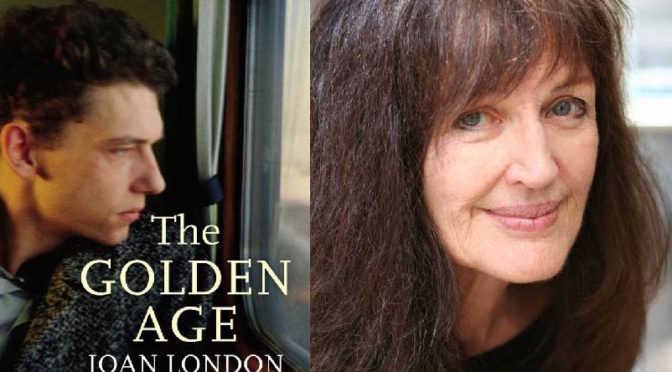Day 8: The Golden Age by Joan London

On the eighth day of Christmas my bookish baby sent to me…
The Golden Age by Joan London!
Written in Joan London’s customary clear-eyed prose, The Golden Age evokes a time past and a yearning for deep connection. It is a rare and precious gem of a book from one of Australia’s finest novelists.
Is this the perfect Christmas present for you?
What the Stella Prize judges said:
“The time is the early 1950s, the place Perth. The Gold family, survivors and refugees from wartime Europe, have been blasted by the fates once more: their only child, Frank, has been caught up in the polio epidemic and is now recovering in a halfway house for convalescent children, a converted pub called The Golden Age.
“Through the Gold family and their various acquaintances, London explores the social and emotional implications of her story with quiet power and precision, using the tale of one family at one moment in the social history of Australia to illustrate more abstract and general themes. It’s a story of exile, transition, and resilience; it shows the power of vocation and the fragility of love. And in its account of how it feels to belong to a displaced, marginalised and vulnerable race recently threatened with genocide, it has some delicate reverberations for the oldest Australians as well as for the newest.”
The blurb:
It is 1954 and thirteen-year-old Frank Gold, refugee from wartime Hungary, is learning to walk again after contracting polio in Australia. At The Golden Age Children’s Polio Convalescent Hospital in Perth, he sees Elsa, a fellow-patient, and they form a forbidden, passionate bond.
The Golden Age becomes the little world that reflects the larger one, where everything occurs, love and desire, music, death, and poetry. Where children must learn that they are alone, even within their families.
What the critics said:
‘[I]t is a measure of London’s deftness as a storyteller that the novel is … a universal meditation on nostalgia and hope, belonging and exile, love and loss, old world and new. Indeed, for a relatively short work it contains multitudes: narratives overlaid and assembled in such a way as to link disparate characters, milieus, generations, their respective fates imbricated like tiles on a roof. This sense of compression is aided by prose that often feels closer to poetry, that most direct of routes by which language gets to the truth of things.’ – Geordie Williamson, The Australian
‘Although the setting may seem grim – the Golden Age is the name of the hospital where Frank and Elsa’s love story takes place – this novel is a brilliant display of life and change: the transition between war and peace, between love and permission, between terrible paralysis of various kinds and movement.’ – Brenda Walker, The Monthly
‘The best way to plumb the lovely depths of this novel is to let it reveal itself.’ – Helen Elliott, Sydney Morning Herald
‘Her writing, which calls attention to itself only by its precision, gives you an opportunity, the way silence sometimes does, to reflect productively. Best of all, it returns you to an early pleasure: the pleasure of story, of wanting to know what happens next.’ – Tegan Bennett Daylight, Sydney Review of Books
Further reading:
- Jane Sullivan interviews Joan for the Sydney Morning Herald
- Joan speaks to Magdalena Ball for The Compulsive Reader
- Listen to Joan discuss The Golden Age on ABC Radio National Books and Arts
And finally…
Click below to see Joan read from The Golden Age during the Stella longlist readings event at the Digital Writers’ Festival:




